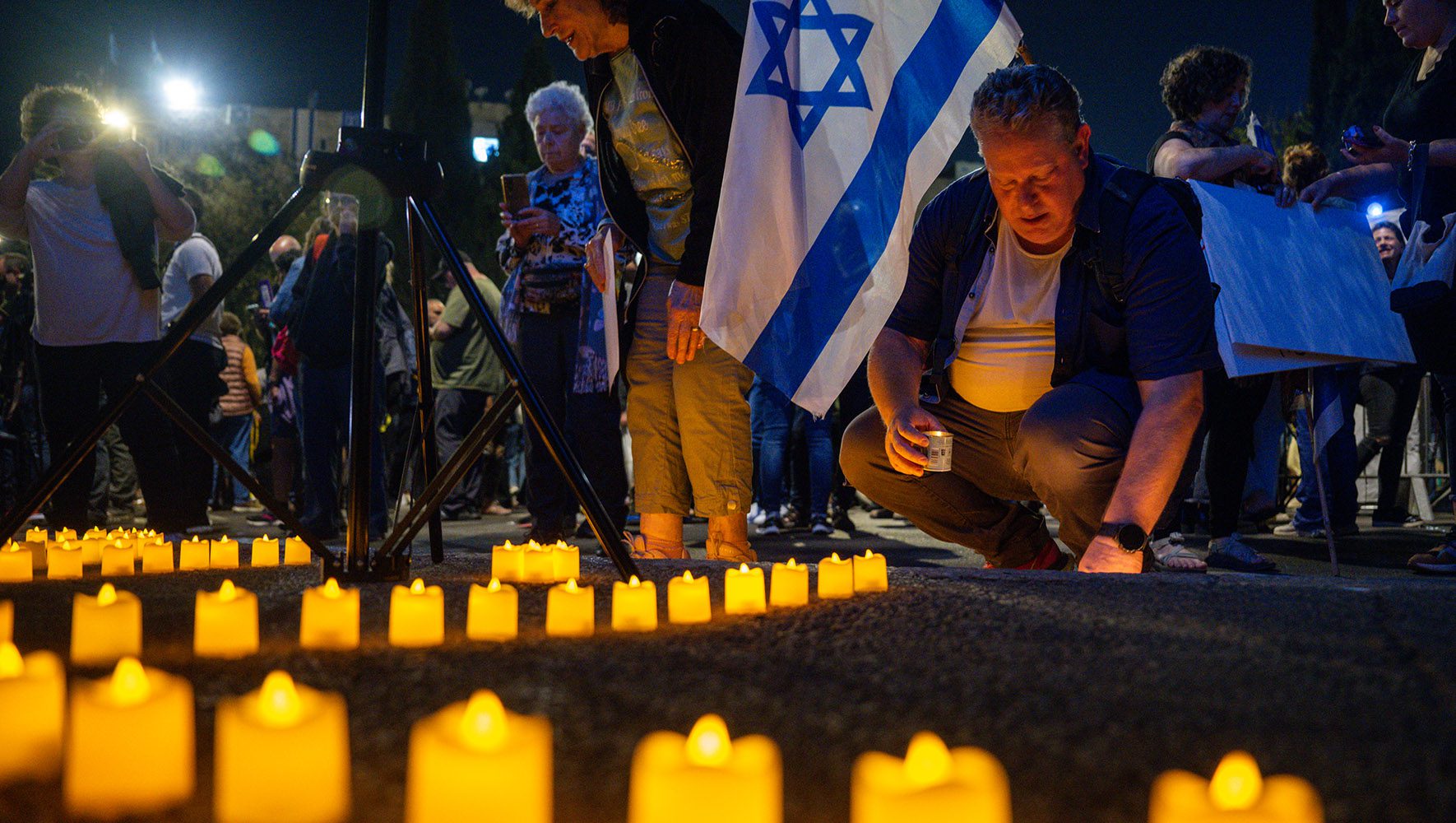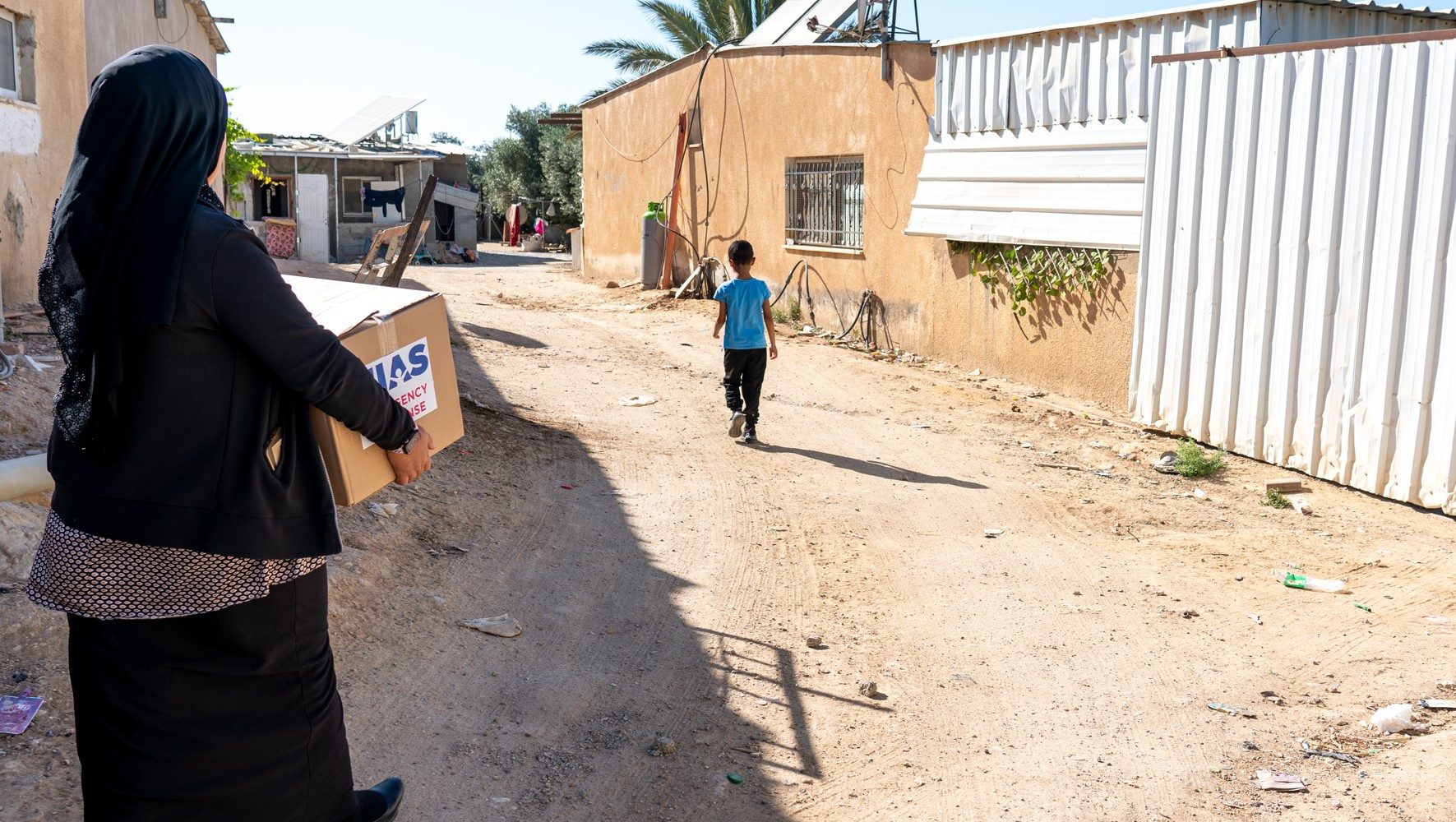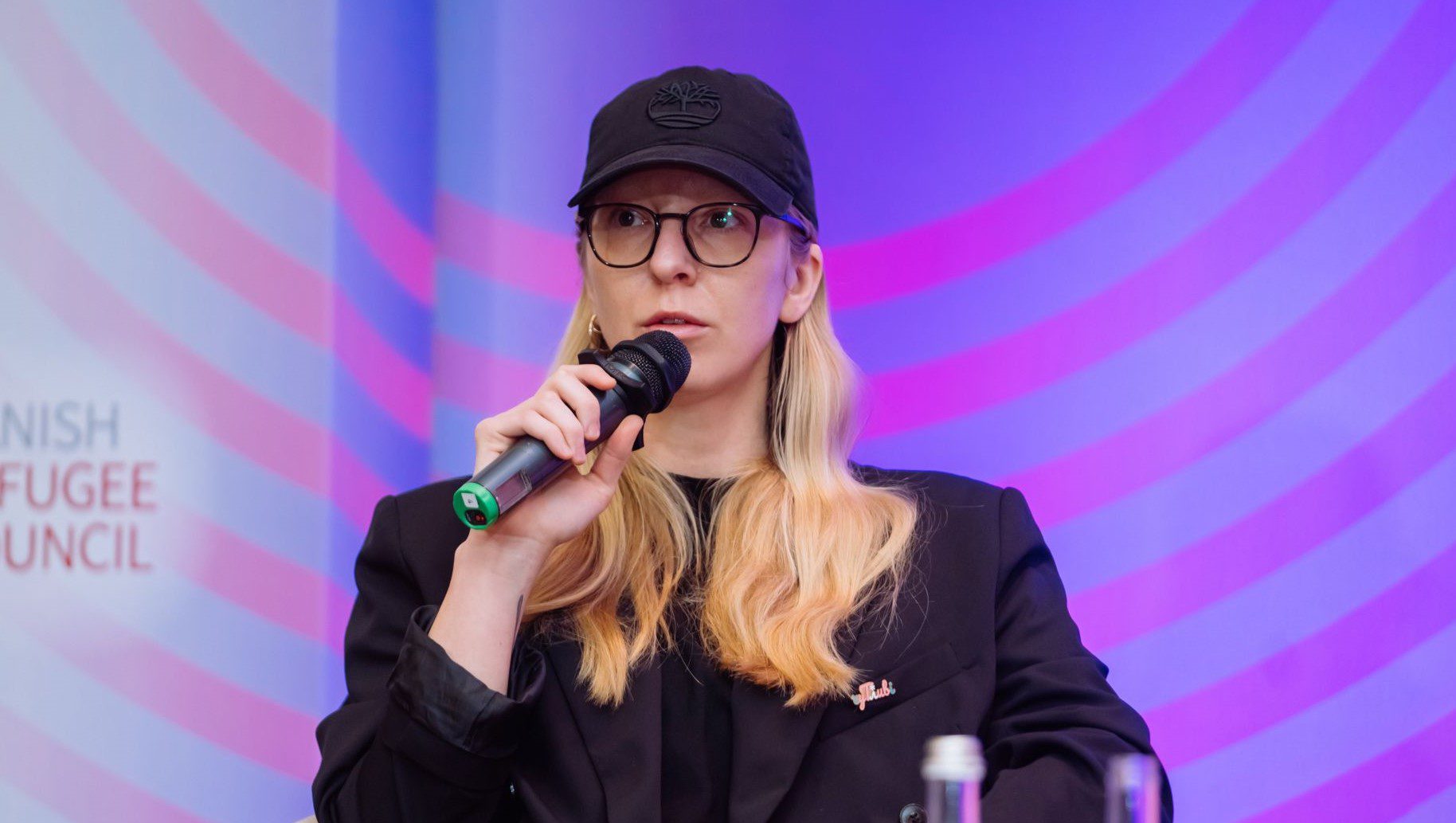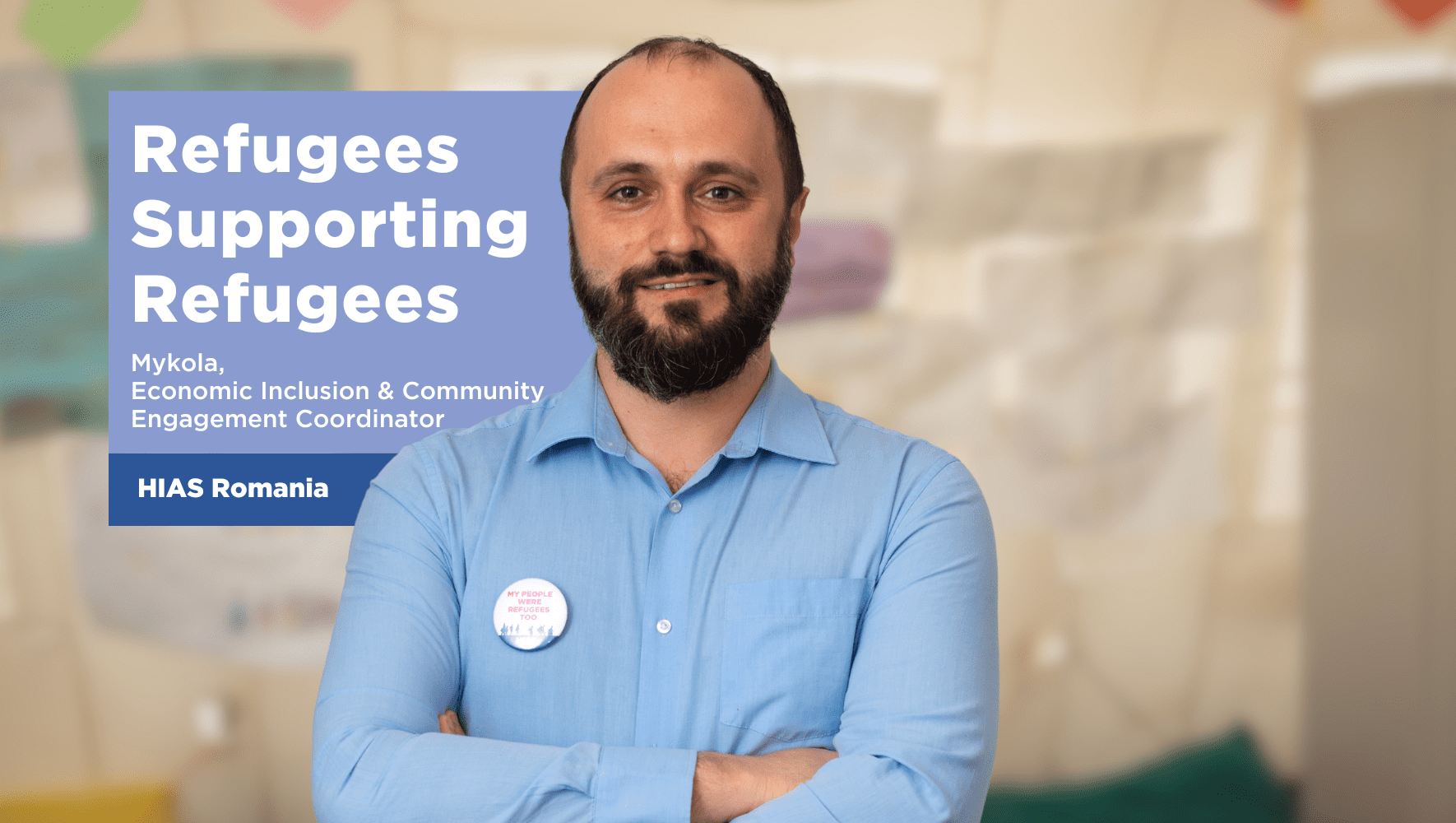Sustaining Life Amid the Devastation
By Rabbi Sarah Bassin and Rebecca Kirzner
Nov 13, 2023

The October 7, 2023 attacks have led to an outpouring of grief across Israel. In the midst of devastation, HIAS has continued its work in the country in support of our Jewish values. (Alexi J. Rosenfeld/Getty Images)
Rabbi Sarah Bassin is HIAS’ Director of Clergy and Congregations. Rebecca Kirzner is HIAS’ Senior Director of Grassroots Organizing and Advocacy. This article is a reflection on the heartbreaking moment for many of us in the Jewish community, and how HIAS is showing up in solidarity and grief, as humanitarian responders, and as Jews.
We cannot begin to take in the devastation in war. We tally the dead, the wounded and the displaced. But the Jerusalem Talmud reminds us that “anybody who destroys a single life, it is counted as if they destroyed an entire world.” (Sanhedrin 4:9*). Every fleeing family is a world upended. Every hostage taken is an existence suspended. Every civilian death is a universe destroyed. One life, and another, and another. Each person equally human; each person an entire world.
The heinous Hamas terrorist attacks on October 7 targeted Jews and other civilians in Israel with unspeakable, intimate cruelty. There is no historical or political context that justifies, explains, or excuses the deliberate murder and kidnapping of innocents. The hostages must be released immediately and without condition. Steps must be taken to ensure that never again will anything like this happen.
As an organization that is deeply rooted in humanity and empathy, advocating for the rights and safety of vulnerable people around the world, HIAS recognizes the pain of any life destroyed. We grieve for the enormity of the suffering in Gaza. We mourn the deaths as a loss no less tragic than the deaths of Israelis. And we demand that the parties to the conflict protect civilians from violence as required by international law, and that doctors and aid workers receive the support they need to save lives so we can prevent the growing humanitarian crisis from becoming a complete humanitarian catastrophe.
The Talmudic passage that grounds HIAS’ work speaks of destruction, but it also speaks of hope. It goes on to declare “anybody who sustains a single life it is counted as if they sustained an entire world.” There are worlds to sustain even, and especially in, the midst of devastation.
The persecution and displacement woven throughout the history of the Jews has left an indelible imprint on the collective Jewish psyche. It has manifested in the central religious tenet to care for the stranger regardless of their background. Our organizational commitment to humanitarian principles is born out of this fusion of Jewish values, history, and lived experience. For more than a century, HIAS has resolutely devoted itself to a singular mission: to stand up for people who have been displaced from their homes due to conflict and violence. In our origins, we built our expertise through aiding fellow Jews. Today, we proudly translate that knowledge into care for refugees and displaced people regardless of their race, ethnicity, or religion.
The hostages must be released immediately and without condition. Steps must be taken to ensure that never again will anything like this happen.
The humanitarian needs are great across the region, including in Israel where there are a quarter of a million people displaced from their homes. We are taking action now — as Jews and as humanitarians, to rise to the challenge of the immense need, to care for people who have been displaced, to recognize their humanity and dignity.
There is no ego in humanitarian work. We provide aid where we are best positioned to take action. We make room for and partner with organizations in the areas in which they excel. We stand ready to assist people on the basis of need, regardless of their race, religion, political opinions, or nationality. Our Israel office, founded in 1950 in order to assist immigrants looking to build a new home in the country, has risen to this moment of crisis to provide basic needs, cash assistance, mental health, and legal protections to the hundreds of thousands of people displaced by the events of October 7. While we are prepared to serve all populations based on need, we are proud to use our unique expertise to provide aid to some of the most vulnerable members of society — refugees from Eritrea, Sudan, Ukraine, and other countries, who may have less access to government support. Our existing infrastructure enabled a quick response with these communities in Israel and we will continue to monitor the need throughout the entire region.
Beyond the conflict’s direct impact on civilians in Israel and Gaza, we are profoundly concerned for its implications on all people connected to or associated with the region.
The global spike in incidents of vandalism, hate speech, and violence in the wake of October 7 directed toward Jews has reignited fear for Jewish safety and security around the world. We are profoundly concerned and are taking action, together with partners, to address the rise in antisemitism. Moreover, the antisemitism that underlies those organizations, institutions, rallies, and individuals that have failed to acknowledge the humanity of the victims in Israel cannot be ignored. This is a moment when we all must recognize each other’s stories, histories, values, fears, and hopes. It is a moment to build bridges and lean into relationships.
We are taking action now — as Jews and as humanitarians, to rise to the challenge of the immense need, to care for people who have been displaced, to recognize their humanity and dignity.
Simultaneously, we are profoundly concerned about the rise in Islamophobic and anti-Arab hate-fueled attacks in the U.S., Israel, the West Bank, and around the world. We condemn these acts no less emphatically than we condemn those rooted in antisemitism. The ongoing conflict must not be used as a rationale to dehumanize, harm, or kill people on account of their identity. We implore all people speaking about the conflict to recognize that physical violence begins with violent rhetoric. The destruction of worlds begins with words.
HIAS remains steadfast in our commitment to all who are harmed by conflict and violence. Each person equally human; each person an entire world. If humanity has the power to destroy worlds, we also must own our power to sustain them.





